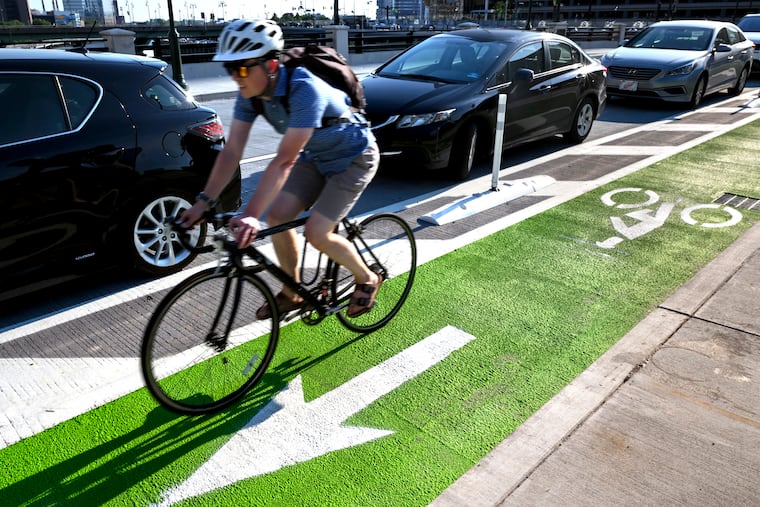Letters to the Editor | May 2, 2023
Inquirer readers on bike lane enforcement, high water bills, and trust in the Supreme Court.

Water bill shock
Regarding The Inquirer article “$3,400 water bill points to a painful path to reconcile,” know that nobody should suffer the sticker shock described and that proven measurement science can come to the rescue. I spent most of my 50-year career in flow metering. Estimating your consumption and comparing it to a certified and calibrated meter is a tough battle. Your only surefire defense is to have your own certified and calibrated meter. Then you can have a face-off based on science, not hope. Domestic (home) water meters sell for $100 to $200. Any plumber can install one that is in line with the utility meter without disturbing that meter. Many water utilities will sell a meter to you. This has a couple of advantages: The utility recognizes the quality of that meter, and it will calibrate and certify it for you. If you have a dispute of more than a 2% difference, you can blow the whistle and have a face-off. Someone trusted by both sides will run water through each meter into a calibrated container and compare the actual volume to the meter readings. In the case of the article, the culprit is probably in the billing system or human error (assuming there is an error). Water meters do wear over time, but typically they read less water than used; in other words, they tend to read in the consumer’s favor. Think twice about having your old water meter swapped out.
Jeff Cantwell, West Chester
Fair is fair
The Philadelphia Parking Authority announced a new campaign against drivers who park or stop in bike lanes. Not mentioned, of course, is that these patrols will not enforce the law on cyclists who illegally ride on the sidewalk or the wrong way on one-way streets.
I. Milton Karabell, Philadelphia
Faltering trust
Dysfunction occurs when good people cover up someone’s conduct to protect a family member, a political party, or an institution. The U.S. Supreme Court justices who sent out a statement about how they all voluntarily adhere to a code of ethics is an example of good intentions with disastrous results for the court’s integrity. In the public eye, it will only contribute to less trust in the institution, because nothing is being done to address the issue of Justice Clarence Thomas’ conduct. No one on the court is saying that questions have been raised and they will be addressed about his conduct because no mechanism exists to do so. Adherence to ethical conduct is purely voluntary, and asking us to trust them does not cut it. Given the lies told by the conservative majority at their confirmation hearings about abortion being settled precedent, along with the shady sale of property by Neil Gorsuch, this standard is clearly not working. Bland reassurances by the court just show how dysfunctional it has become as it goes down the rabbit hole along with Thomas.
George Magakis Jr., Norristown
Subpoena Roberts
So, John Roberts “declines” a request from the Senate to testify. My suggested response? “Here’s a subpoena, Mr. Chief Justice. We have serious and valid questions about justices accepting tons of money and gifts from donors who have ties to cases before the U.S. Supreme Court. One such donor is the landlord of a justice’s mother, who charges her no rent. We have questions about failure to disclose gifts. We have questions about why the court is the only governmental body without a code of ethics. And we want the American people to hear your answers. Of all people, you should know that no one is above the law. We decline to accept your response. We’ll see you soon.”
Dave Lipshutz, Mount Laurel, delipshutz@comcast.net
Join the conversation: Send letters to letters@inquirer.com. Limit length to 150 words and include home address and day and evening phone number. Letters run in The Inquirer six days a week on the editorial pages and online.